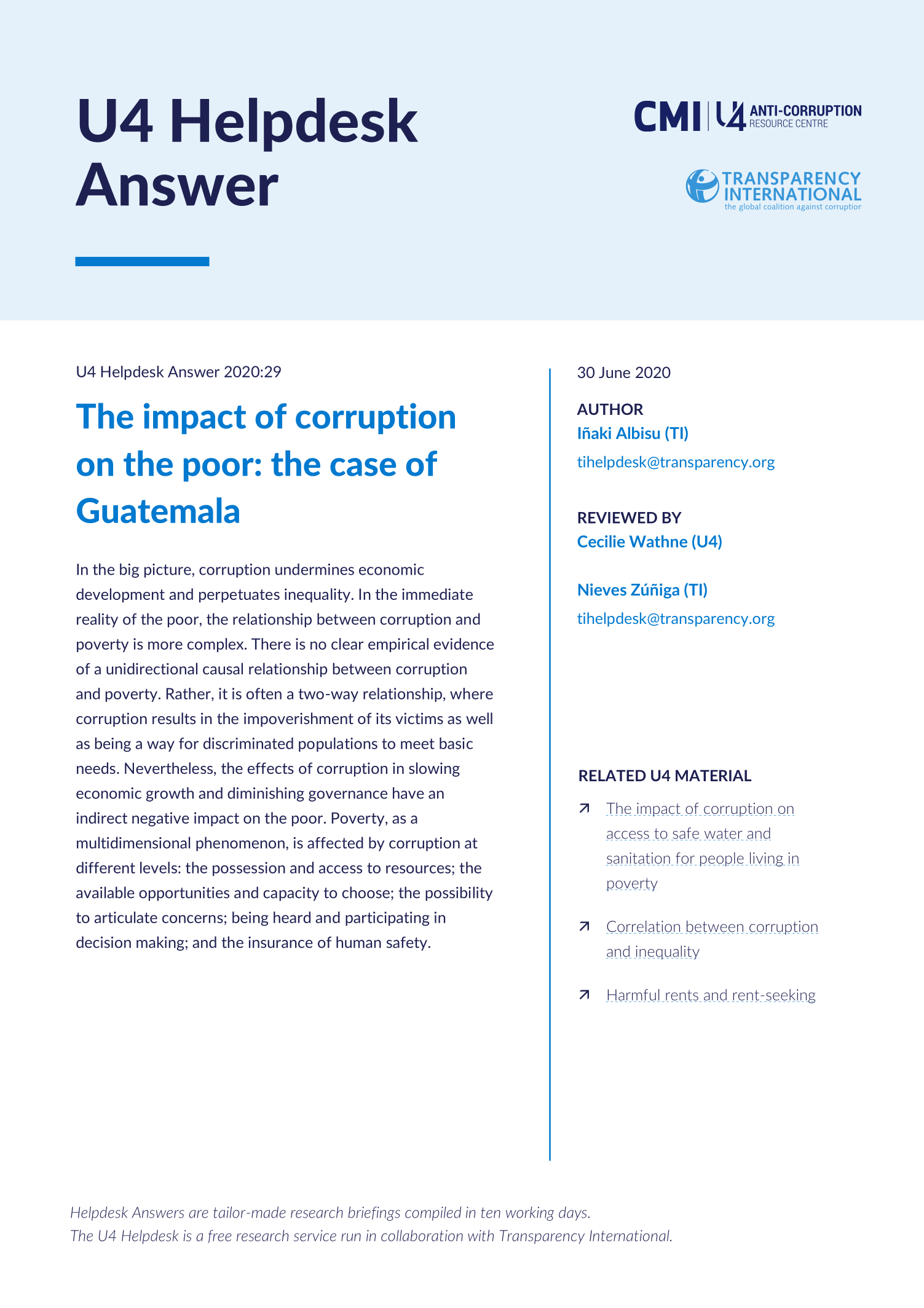U4 Helpdesk Answer
The impact of corruption on the poor: the case of Guatemala
In the big picture, corruption undermines economic development and perpetuates inequality. In the immediate reality of the poor, the relationship between corruption and poverty is more complex. There is no clear empirical evidence of a unidirectional causal relationship between corruption and poverty. Rather, it is often a two-way relationship, where corruption results in the impoverishment of its victims as well as being a way for discriminated populations to meet basic needs. Nevertheless, the effects of corruption in slowing economic growth and diminishing governance have an indirect negative impact on the poor. Poverty, as a multidimensional phenomenon, is affected by corruption at different levels: the possession and access to resources; the available opportunities and capacity to choose; the possibility to articulate concerns; being heard and participating in decision making; and the insurance of human safety.

Cite this publication
Ardigo, I. (2020) The impact of corruption on the poor: the case of Guatemala. Bergen: U4 Anti-Corruption Resource Centre, Chr. Michelsen Institute (U4 Helpdesk Answer 2020:29)
Disclaimer
All views in this text are the author(s)’, and may differ from the U4 partner agencies’ policies.
This work is licenced under a Creative Commons Attribution-NonCommercial-NoDerivatives 4.0 International licence (CC BY-NC-ND 4.0)